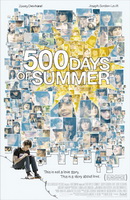red and yellow, black and white

The Muslim student was rejected from Burnley College (United Kingdom) for standing firm in her choice of wearing her burkha. Reasons given for forbidding her enrollment was that full face to face communication and contact between the student cohort and the teachers were vital. However, Bliqes feel that the school should be more accepting to different cultural practices since we are all in the 21st century.
However, a controversy will be, should they not discard such traditions since it is in the 21st century.
Usually when one is in a foreign country, especially in another land whereby the cultural clashes are so vast, one will conform to their norms, starting from physical appearances. The way you dress will probably be the easiest to blend into a culture, to prevent you from being so prominent and stick out from the crowd. This in turn helps you to avoid prejudice: negative interpretation, discounting, fundamental attribution bias, exaggeration, polarisation. Especially after the 911 incident, Muslims are viewed very negatively and having extreme prototypes associated with them; moreover, in a schooling environment, one has to deal with polarisation especially.
From that, she has also reflected her country's collectivists' spirit, but not conforming to their cultures by dressing up as a normal British citizen. In Muslim countries, a very strong united spirit can be seen among them (the Muslims), they value their family a great deal, as seen from their color-coded dressings, and also they are very strongly rooted in their religion, traditions and customs. Their social norms are usually defined by the group, rather than for self pleasure; in this case it would be referring to the wear of the burkha, for it was a tradition that they still carry with them and it was a tradition Bliqes stuck to, right till the end. By persisting on with her decision, it also shows that she is proud of her roots and her culture, instead of trying to fit in and conform to another's, is also the trait of a member from a collectivist society.
Likewise in Singapore, was the incident back in 2002, which caused an uproar in the Muslim community, whereby 4 primary schools were being dismissed from school for they insisted on putting on their tudongs daily, despite the rule that they were not allowed to. One big contradiction, however, will be that Sikhs schoolboys are allowed to wear the turban to school? The reason behind is that during the British rule, Sikhs schoolboys were already allowed to do so, yet there were no records about Muslim girls regarding tudongs. It was accrued to the fact that there were hardly any Muslim schoolgirls then. Whatever it is, I personally do not feel that this reason is of any good to explain the differences, unless this is a gender discrimination instead of a racial one. Clearly, this is playing to an extent some sort of bias, obviously going against the government's aims of national integration.
As we know, Singapore is a multi-racial society which takes pride of its socially and racially cohesive society. Even so, another known fact amongst us is that racism still prevails and is almost impossible to be fully eradicated, in the near future at least. Culture is dynamic and has it's influences to the practices and beliefs held by each racial group. In Singapore especially, this is prevalent for everyone is more or less on a common ground. Despite of that, the government can still do something about disallowing Muslim girls to wear tudongs in government schools.
Discrimination is similar to culture as it is being learned or taught, and it also plays a part in molding culture too. In Singapore, racial discrimination is kept very low, as compared to the United States. We all may have our different perception, however we often do not show it and are generally civilized about our mannerisms. Thus, I do not think that Muslim girls wearing the tudong will make any differences to the other children in their (Muslim girls') classes, besides the fact that it might raise questions. Unless the parents of these children start injecting racist notions into their head, would then wearing tudongs be posed as a barrier towards interracial communication. If not, it will simply be of a good measure regarding how efficient and consistent the government is, when it comes to implementing the government's own policies.
So what is it that makes the government so adamant on not allowing Muslims in public schools (not including religious schools) to put on a tudong to school? Is it to minimize possible discrimination for the generations to come? Or?











